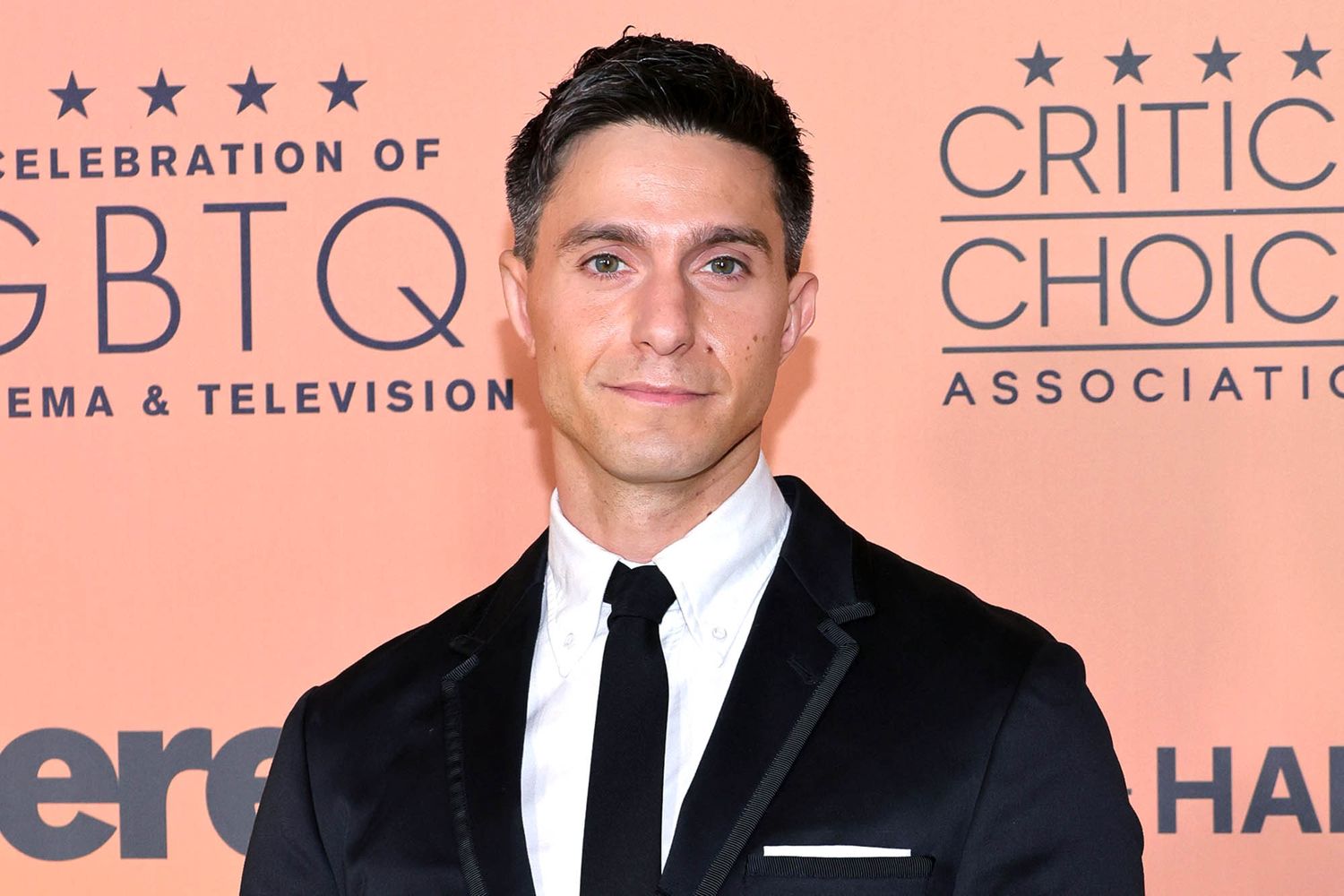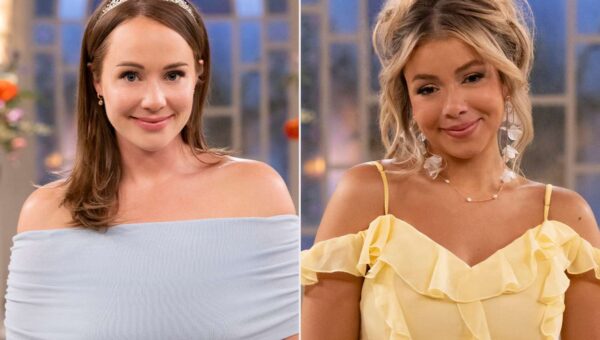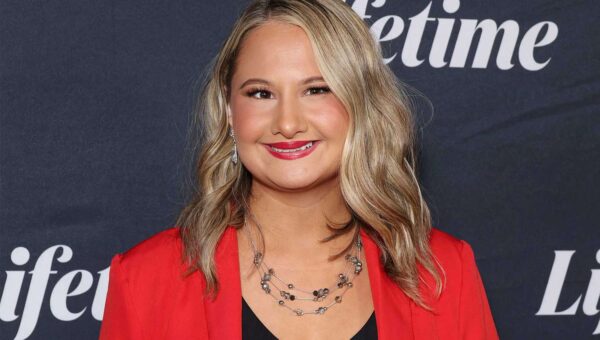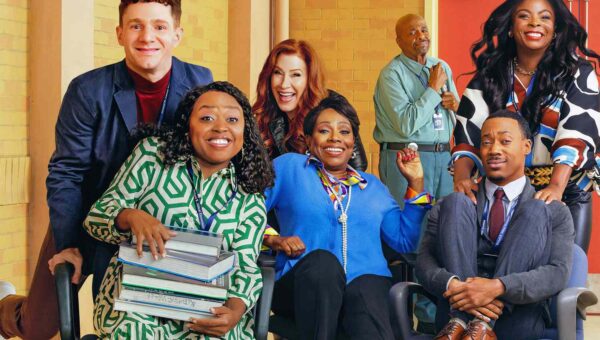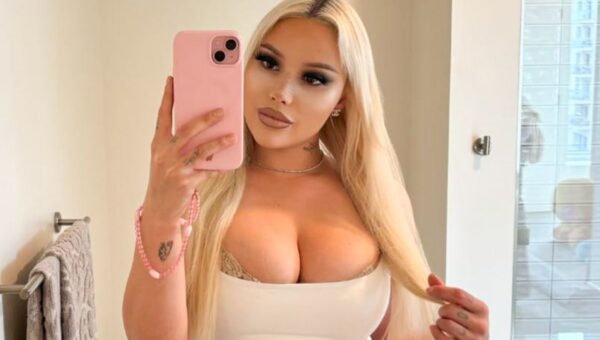Gideon Glick is one of the most fascinating talents in Hollywood
:max_bytes(150000):strip_icc():format(jpeg)/Gideon-Glick-Critics-Choice-Association-celebration-063035-8c4d8b7a194d416b80a00fce422afc62.jpg)
- Thanks to Étoile and The Marvelous Mrs. Maisel, Gideon Glick is fast becoming one of the most interesting actors in Hollywood.
- But theater lovers have known him far longer, dating back to his Broadway debut at 17 years old in Spring Awakening.
- What’s next for the actor turned TV writer?
Theater nerds have been talking about Gideon Glick for years.
The actor and writer burst onto the scene at only 17 years old when director Michael Mayer found him and cast him as Ernst in the off-Broadway production of Spring Awakening, a role Glick reprised in the hit Broadway production.
“He was wonderfully peculiar,” Mayer tells Entertainment Weekly of what he first noticed about Glick. “He’s got a singular sensibility. He had real chutzpah. I thought that he was a remarkable actor and a beautiful singer, and he just has his own rhythms.”
Walter McBride/Corbis via Getty
Mayer continues, “He brings his own unique rhythm to everything he does. Gideon always comes in with a very strong perspective. It’s the way he sounds, moves, thinks, and feels, and it’s quite thrilling to encounter.”
Partly that’s because Glick is deaf in one ear. “He hears things differently than we do,” the director continues. “He literally hears the world differently, so it’s no wonder that he sounds different. The way that he makes his own music in the world is altered and it’s beautiful and special.”
Joan Marcus
After a year in the Broadway cast of Spring Awakening, Glick decided to take a different path, enrolling at New York University and majoring in art history. It ended up taking him eight years to finish his degree, as he regularly paused to pursue more work in the theater.
He landed roles steadily, including starring in Stephen Karam’s Speech and Debate and Joshua Harmon’s Significant Other, a role in the notorious Spider-Man: Turn Off the Dark, and an eye-catching turn as Dill Harris in Aaron Sorkin’s stage adaptation of To Kill a Mockingbird.
In all this time, Glick never had an official “coming out” moment, having already been openly gay since middle school. That confidence in his own skin and his identity also struck Mayer from the beginning. “He does his own thing,” says Mayer. “Gideon will always do his own thing, and it’s what you want, and it’s why you cast him — because you know he’s going to bring his own special sauce.”
Philippe Antonello/Prime Video
It’s To Kill a Mockingbird that Glick credits as grabbing the attention of figures in the film and television industries. From there, he met Amy Sherman-Palladino and Dan Palladino, who cast him as magician Alfie in later seasons of The Marvelous Mrs. Maisel. That led to a role in Bradley Cooper’s Maestro as Leonard Bernstein’s assistant and lover, Tommy Cothran.
But it was his re-teaming with the Palladinos that helped Glick launch a new chapter in his career, that of both actor and writer. For Étoile, which premiered its first (and only) season on Prime Video this spring, Glick was recruited as a member of the writing staff before getting the opportunity to also star as choreographer Tobias Bell.
We caught up with Glick to talk about his beginnings in Spring Awakening, what sparked his interest in writing, his experiences on both sides of the camera, and much, much more.
ENTERTAINMENT WEEKLY: When did you know that you wanted to be an actor and how did that lead you to Spring Awakening?
GIDEON GLICK: I started out as a singer. I remember really early on I was playing piano, and I was playing “Memory” from Cats, a very easy plunked-out version for kids. I stopped playing and I started singing. And then, my mom came into the room and she acknowledged that I had a good voice. From there I started doing musical theater so that I could sing in front of people.
Were you regularly auditioning by the time you booked Spring Awakening?
My senior year of high school, I did Spring Awakening off-Broadway. I went back to Philadelphia and had a summer, and then I moved to New York to do Spring Awakening [on Broadway] for a year before I went to NYU. I always knew I wanted to be an actor.
I always had an arrogant naiveté about what I was going to achieve. And then I achieved it. I was in a hit Broadway rock musical right out of school, and it blew my mind. So then, I thought, “Oh, maybe I should start taking school seriously again.” So I decided to go to NYU and major in art history.
How overwhelming was it starring in Spring Awakening at that age?
It goes back to the arrogant naiveté where you have no grand idea of what it is. You’re like, “Of course this is what I’m doing.” But we were also really well protected back then. It was so thrilling to be in New York for the first time and getting to know these really, really talented kids and getting to do a show that you felt represented you. Not only that, as a big musical theater nerd, I was singing music that I would’ve listened to. I remember when I auditioned for it how excited I got, because this felt like music that was tailor-made for me. For me, it was thrilling, but it wasn’t overwhelming. It felt like a natural place to be.
Theo Wargo/Getty
Was it a bit of a pivot going into more of this rock music space?
No, I mean, Rent is still living rent free in my head. Rent was pivotal for me. It was a poster in my brother’s room. It was a soundtrack that was always on. We listened to it at Quaker Camp. It was pervasive. For my brother’s Bar Mitzvah present, we all went to go see Rent. My brother and I used to perform it too — I used to perform as Mimi and he would perform as Roger.
In terms of Ernst, tell me more about crafting that character. Did you feel like he changed a lot from off-Broadway to Broadway?
I didn’t really know what I was doing back then, so the more I did it, the harder it became. It was easier to do off-Broadway because I didn’t really know how to sustain a run. To do eight shows a week, it’s a real craft and meditation. The mind starts to play games with you when you start to do the same thing every day. To be quite candid, I based Ernst on Katie Holmes in Dawson’s Creek. A naive little girl, and that’s how I made him.
You said Spring Awakening was a show that represented you. Had you already figured out your sexuality at the time? Were you out? What was your relationship to the work in that context?
I came out when I was 12 years old, so I was always out, and I’ve always been out in my career. I was always pretty precocious. I say I’m not like Ernst because I am a little bit more out there and more pronounced in who I am. I didn’t really go through a process of confusion. I was very lucky. I never felt shame about my sexuality. And I was nurtured by very progressive parents and siblings. So, I was excited that I was doing the gay kiss and that other people would see that and they would be excited by that. Spring Awakening, it was interesting doing that reunion [in 2021] because it brought up so much. But a lot of people have come up to me through the years and have said that they were able to talk about their sexuality because of Spring Awakening, and that’s really moving to me.
Philippe Antonello for Amazon MGM Studios
How did you first meet the Palladinos?
I met the Palladinos on this very same computer I’m on right now in my one bedroom apartment. I’d put myself on tape forThe Marvelous Mrs. Maisel, and then I did a read for them. Amy, after my first read, looked at me and went, “God, you’re weird.” And I immediately had a sense that this was going my way.
For Alfie on Maisel, did you have to learn how to do magic or did you already know?
No, I didn’t know how to do magic. Magic is so hard. You have to be really nimble to do magic. It’s funny, for someone who’s really not coordinated, I’ve now had to do magic and ballet. It’s really quite shocking that I’ve landed in those two roles. But I trained three days a week in magic because I had that big magic show towards the end of the season. I didn’t know what the magic was going to be, so I just learned anything under the sun. Everything I learned I didn’t end up doing.
You moved from being on Maisel to then having a larger role on Étoile and writing. What was the development of that relationship with them?
I love them so much. They are family at this point. We became close on Maisel. It became clear that we shared a sensibility artistically, and also. interpersonally. They had read my writing, and so they invited me to join the writers’ room first. And then, about a month into the writers’ room, they offered me the part of Tobias.
Prime Video
In terms of the Palladinos and your sensibilities aligning, can you elaborate on that a bit? What makes you click with them?
We have similar senses of humor. They have this Borscht Belt mentality to their writing. I also have that. I come from the theater. It’s funny that they don’t come from the theater because they are so theatrical and they love theater. Coming from doing plays where the word is king — you don’t paraphrase; you don’t change the language — and they’re the same way. As an actor, I really like that. I think it comes from being Jewish where it’s like you have this text and the text is set in stone, but you can debate what it means and you can interpret it. And that’s how I view scripts and that’s how they view it too.
What kind of writing were you doing before Étoile?
Growing up, I wrote stories and plays. Then during the pandemic, before things started opening up, I had, maybe it was mania. I don’t know what it was, but I started writing a lot. A lot of screenplays, and I wrote this idea of a show that I wrote for myself. I worked really hard on that, and that ended up being the sample writing that they had read. Now, I’m developing TV shows, and I have a film that is in the process of getting made.
Philippe Antonello/Prime Video
Were you already writing the character of Tobias before you knew you would be playing him?
I always had a sense that I was going be playing him. Every time they talked about Tobias in the room before they offered it to me, they would look at me and gesture to me. Even when I read the character breakdown, I felt like that was the way it was going to go. Honestly, in the room when we talked about Tobias, I was actually more reticent speaking up, especially after I got the part. Because it was involving me, I didn’t want to steer it too much unless it was something I felt really, really strongly about because I was trying to be respectful.
This role was really an opportunity to foreground your sexuality and have this awesome love story with Gabin (Ivan du Pontavice). Was that always inherent to the script, and did you have any input on that when you were in the room?
What I was really excited about and tried to reinforce in the room was that this wasn’t a coming out story. Neither character had to say, “I’m gay.” That wasn’t what it was. They were developing feelings for each other, and it was very apparent, so we didn’t need to have to declare who they were.
Prime Video
Sadly the show was canceled, so can we just assume that Gabin and Tobias live happily ever after?
I’m so sad that we’re not going to get a second season. Obviously, I’m very, very proud of our first season. What I’m most sad about is that we were starting to really cook, and I was excited about the possibility of the second season and where these characters were going, especially Tobias and Gabin, because we would’ve seen them in a relationship and seen whatever that looked like to those two weird, weird guys. It would’ve yielded really interesting stories.
Do you want to keep working with Amy and Dan, and do you feel that you want to focus more on writing versus acting?
I, of course, want to work with Amy and Dan. I would act out of a garbage can for them. They’re incredible collaborators, and the amount of growth that I’ve had because they invited me into the room and they invited me to be a serious regular, I’m so eternally grateful for it. For my own writing, it depends on the day. Right now, I have a film that I’ve adapted from a book. That is what I’m most concerned with at the moment. But I like doing both. It’s creatively fulfilling in very, very different ways.
Philippe Antonello/Prime Video
You said Tobias is weird. You said you’re weird. Are you weird in the same way?
No. I’m pretty talkative. I like people and I am pretty forthcoming about my life. I was born with one ear. I am hearing impaired. I’ve always lived life to my own beat, but Tobias is far more introverted. Tobias is a lot more complicated and has a much more pessimistic way of looking at life. There’s a lot of torture within him. I’m not like that as much. I can be mercurial and I am an artist, and we can be really moody and sensitive. We’re both sensitive, but we’re different animals.
I loved what you were saying about how it’s not a coming out story, it’s just already part of the fabric of who these characters are. Is that something that you are hungry for more of either in your own writing or in work that you’re seeing being done elsewhere?
I’m always interested in gay representation in all forms. Because I didn’t struggle with my sexuality, I am not as drawn to those stories. They need to be told, but I’m interested in stories that are going beyond that. I’m interested in characters that have many, many facets to them and they also happen to be gay.
You started your professional career at 17 years old. What do you wish you could tell 17-year old Gideon now and what do you think is the biggest difference between you then and you now?
To my 17-year-old self, it’s so cliche, but I’d say, “Keep the faith.” Even when you are succeeding, it is still hard to feel successful. There’s still so many other milestones you want to achieve. And not only that, but even when you are succeeding, you still have a lot of time on your hands. It’s so important to tell young people that you need to not be so myopic and fill your life with friends. family, love and other interests, artistic or not. Learn how to cook. Go to a museum, read a book, write a book. If you become so tunnel vision about what you’re going to do, you’re just going to be in despair.
And the biggest difference between yourself then and yourself now?
I would say confidence. I was always precocious. I didn’t necessarily have confidence, and I have confidence because that just comes with time and wisdom. I feel weirdly fortunate that my career wasn’t a skyrocket. Obviously, I did Spring Awakening right out of high school, which is a big deal, but it has gotten richer and deeper with increments, and I feel fortunate to have had that because I’ve learned a lot and I’ve made a lot of mistakes, but they all became the fabric of who I am.
This interview has been edited for length and clarity.
Sign up for Entertainment Weekly‘s free daily newsletter to get breaking TV news, exclusive first looks, recaps, reviews, interviews with your favorite stars, and more.
